We cannot reveal their identities for security reasons. Behrouz Asadi, a human rights activist based in Germany, accompanies them so that at least some of those hundreds of pellets that struck the man’s body can be removed. This is the story of a husband and wife whose lives were turned upside down on the 40th day after the death of Hadis Najafi, a 20-year-old woman who was killed in a spray of bullets during the 2022 nationwide protests.
The man was lying on the ground when an armed security agent shot him with up to 300 pellets. The woman searched desperately for her husband amid the mayhem and gunfire. She imagined the worst – everything except that her husband had been blinded.
Now, in Germany, the couple continue to fight hand in hand and in the hope that, someday, the man would regain his sight and their pain would subside a bit.
***
The door opens and the man and the woman enter together in the hall where they are to be videotaped. She is holding his hands and walks slowly. The man, who cannot see anything, is wearing sunglasses. The woman is smiling but deep sadness is visible in her eyes. She now has to see for both of them and her eyes seem to carry the whole weight of 10 months of pain.
They sit with their backs to the camera. Human rights activist Behrouz Asadi sits opposite them and, looking at the floor, explains to them that the doctors must now remove the pellets from his face and body but they have no hope of restoring his sight.
According to his wife and medical evidence, the man has between 250 to 300 pellets in his body. The wife was shot with pellets as well. One was behind her leg. There are still pellets in her finger and one of her earlobes.
Shooting the Man Lying on the Ground
The man begins the story: “We wanted to go to the graveside of [Hadis Najafi]. It was very crowded and the traffic was unbelievable. A group of people started chanting slogans and the agents threw teargas and fired guns. We ran. I don’t know what happened but suddenly the agents came from all directions. We scattered, were separated and could not find each other.”
The woman is looking down, shedding tears, as she remembers the scene.
“I laid down on the ground so as not to be shot,” the man continues. “When I laid down, my face was down and my hands were on the ground so that the shots wouldn't hit me. After a few minutes, I raised my head. The moment I raised it I saw an armed security agent, a young man of around 30 years old, holding the barrel of his gun exactly two meters from me and cursing at me. Then he fired. The pain made me scream. I remained on the ground for 10 or 15 minutes in so much pain that I asked God to grant me death right then and there.”
Then several protesters told him: “Don’t shout! The agents are here.” They moved him a little away. A door opened, they took him inside, laid him on the ground and went away.
During all that time, his wife was looking for him and was calling his mobile phone. At last, somebody answered and told her where the husband was but did not say he had been shot.
“My friend opened the door to a home and called me to enter,” says the woman. “We went inside. There was a garden full of people who had taken shelter there. There was a girl lying there, covered with blood. I suddenly saw that my husband was there. He was lying on the ground and was drenched in blood. His face was swollen and he was screaming. With the help of our friends, we took him to the car. I had to put him in the trunk of the car so that the security agents would not see him.”
The man fainted and regained consciousness again and again. The man remembers the voice of his wife who was shouting: “Don’t scream; the agents are around.”
Asking for Ice to Save His Life
As he was lying in the trunk, the woman took her husband to a clinic, which refused to let them in. A second clinic agreed to help them, but it was located 500 meters away from a base of the paramilitary Basij force. A group of young people came and stood in front of them so that the Basijis would not see them. They put a parka around him. He was still bleeding. They closed the door to the clinic after they entered. In the clinic, they cleaned his face. They sucked out the blood in his throat and said they must go to the hospital. But the couple was afraid of being arrested if they did. The woman broght her husband to their home in the hope of finding a doctor who would visit them there.
Before going home and after the doctor dressed his wounds and suctioned his throat, he called the woman into a room and said: “I must tell you this: If his physical strength is good and endures till the morning, everything will be fine. Otherwise, I am sorry for you. The only way is to sit next to his bed until morning and stop the bleeding with ice compresses.”
“When we got home, his sister was there and neither of us had a wink of sleep until the morning,” says the woman. “We called our relatives and friends until the morning to bring us ice. We kept him alive by ice compresses.”
The medical staff of the clinic visited their home and provided them with serum, medicine and strong painkillers. He couldn’t see anything. Only his mouth was not covered and his wife gave him soup, water and fruit juice through a straw. His whole face, eyes and nose were bandaged and drenched with blood.
Two days later he was hospitalized. Had he gone to hospital earlier, the security guards would have taken him away because of the way he looked.
“Mahsa Was No Longer Just Mahsa”
They say that they took to the streets from the very first day when the nationwide protests triggered by the death of Mahsa Amini started in September 2022.
“There were always clashes in the streets across Iran between us, the women, and the Basijis and the [morality] patrols,” says the woman. “When I heard what had happened to Mahsa…for a moment I thought it could have happened to my own daughter, to my own sister. When I saw that everybody had risen up, I told myself I must go too because Mahsa was no longer only Mahsa. As a mother, like all of us, I think she could have been my own daughter…I hope that someday all of those who shed so much blood, who caused so much damage, will pay for all their sins. I am hoping for such a day.”
The woman was once taken by the morality police to the detention center on Vozara Avenue in Tehran. She had gone with her husband to the mall to do some shopping. Two chador-clad female agents stopped her and asked for her ID, but she told them she did not have it with her. And when she asked them why they wanted her ID, she was told that “your manteau is too short and your hair is showing.”
They took her next to a van and told her to enter it to “sign a pledge.” They said she then “may go.” The moment she sat down in the van, the agents locked the doors and drove toward the detention center. When she objected, she was told: “Nothing to worry about. You will sign a pledge and you can go.”
“My husband, who was driving our car, followed the police van,” says the woman. “[The detention center] was crowded. They told me to go into a room. Another woman was standing there. It was as though I was a murderer. She hung a plate with a number on it on my neck and took my picture from this side and that side. Then she told me to sign the pledge. She told me that I had to wear a long manteau and then I could go. ‘I have nobody in Tehran to bring me a long manteau,’ I said. ‘Call somebody to bring you one,’ she said.
“A mother who had come to pick up her daughter told me that, once they go out, she would take off her manteau. She came back with the long manteau and gave it to me. I wore it and two alleys further away I took it off and put on my own short manteau.
“It is a strange feeling: Why should someone be treated this way because she is a woman? Why do they view women in such a humiliating way? We have to ask everybody’s permission before we do anything and they decide for us.”
Lives Turned Upside-Down
After having lived together for nearly 33 years, their lives took a dramatic turn. The man would wake up in the morning, they had breakfast together, he would go to work and come back for lunch and then return to work, while she was keeping the house. It was a good life that was taken away from them.
“Now, for almost 10 months, he has been forced to stay at home and there is nothing he can do about it,” says the woman with a lump in her throat and tears in her eyes. “What we used to do has been reversed: I have to do things he did himself and for me. There are things to do that are beyond my abilities. But he is still my husband. I mean it. He comforts me but it has become very difficult.”
“I am still with him and I will remain with him till the end and till my last drop of blood. I will continue on the same road we have chosen.”
“At first it was very difficult,” says the husband. “I used to do my own things myself but now I have to go everywhere with my wife. I loved technology and the internet so much. From the morning when I went to the shop I would turn on the laptop and search non-stop through the internet, Telegram and…and see the events. I did bank transactions and everything through my mobile phone. I did everything myself and did it eagerly, but now that I am like this I cannot do these things. It has become very difficult for me.”
Nightmares but No Remorse
It has been 10 months since the night he was shot but the man still cannot sleep most nights, and when he does he dreams of light.
The woman has the same nightmare about that fateful night over and over again: “ We are leaving home. The scenes move in front of my eyes, like they are on a movie screen — the scenes from the moment I saw him and saw what had happened to him. Then, suddenly, I wake up. Sometimes I can’t sleep two or three nights in a row after seeing those scenes in my sleep. Sometimes I dream I have fallen down and cannot get up. It is as though I have become crippled.”
The man is serene when he talks: “I feel no remorse. I was in all the protests. Not only me, but also my children and my wife. I never feel guilty that I went and this happened to me. I went because I wanted our children to be free; I wanted Iran to be free. I always regretted that we are so far behind the world? Why is every country that you look at so advanced, while in our country we cannot even make a decent car so that so many people would not get killed on the roads. I am not sorry and my family, both my wife and my child, are supporting me.”
In the mourning ceremonies marking the 40th day since Hadis Najafi’s death, at least two other protesters lost one or two eyes. One was Majid Khademi, a PhD student at Isfahan University of Technology and a researcher in biotechnology who works with a company that develops medication for cancer treatment. The other was Hossein Naderbeigi, a young bystander who lost both eyes right after finishing his military service.
Two others who were present during those ceremonies, Mohammad Hosseini and Mohammad Mehdi Karami, were hanged in January of 2023 after being sentenced to death on trumped-up charges.
visit the accountability section
In this section of Iran Wire, you can contact the officials and launch your campaign for various problems









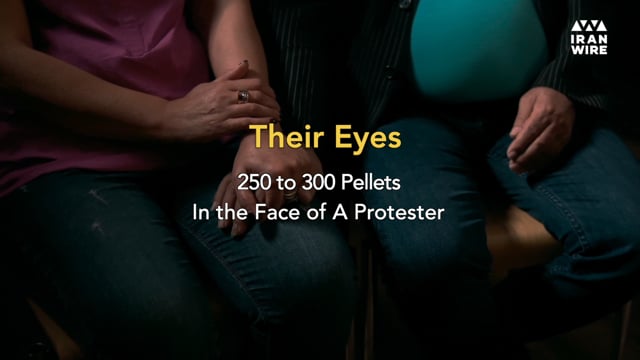





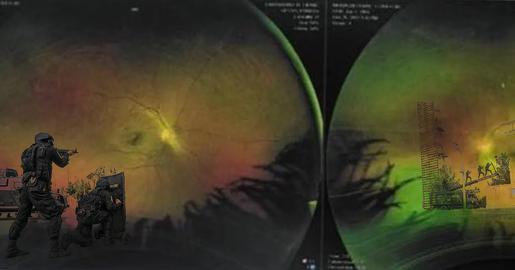
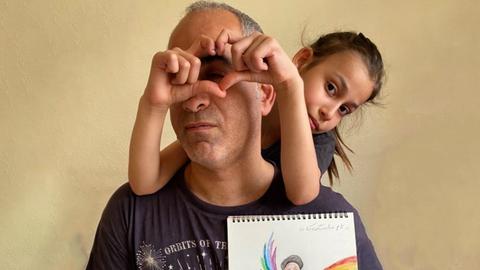
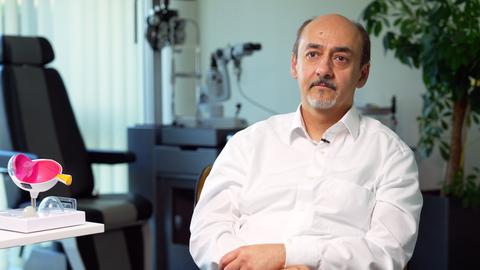


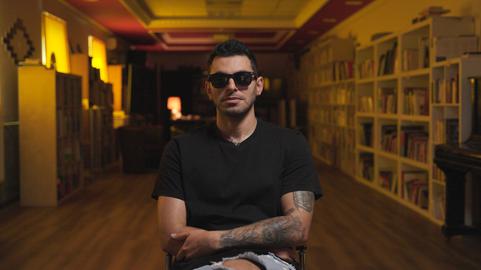



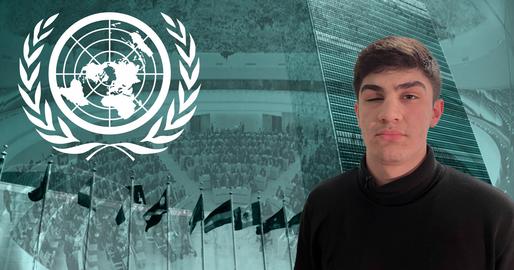



comments